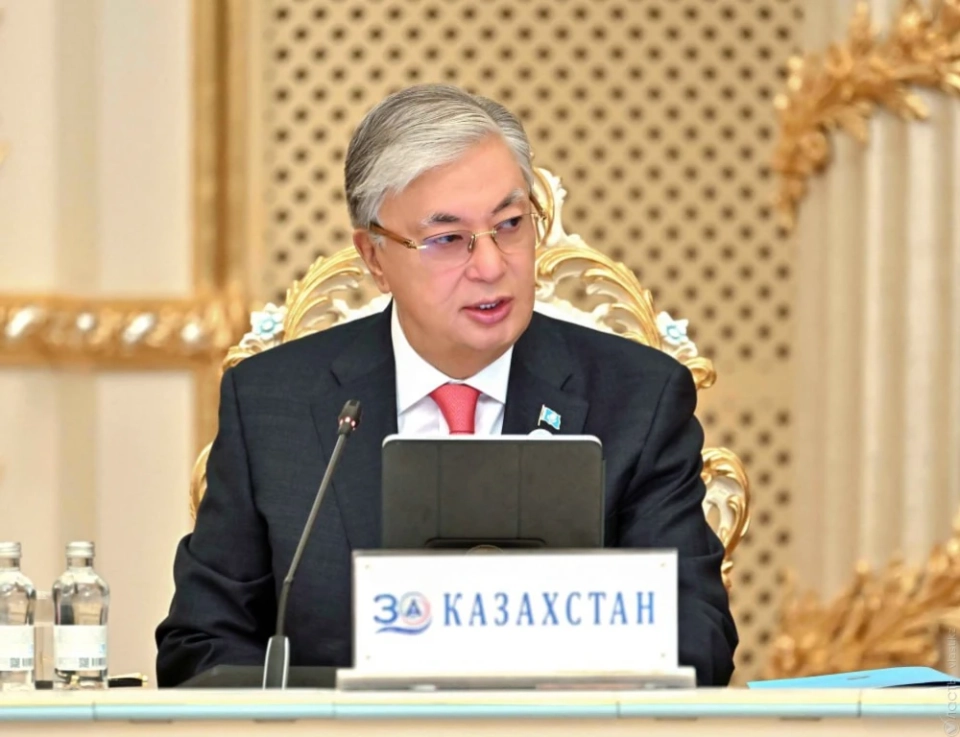Why is Tokayev responsible for everything happening in Kazakhstan?
In the Turkestan region, in the village of Algabas, a terrible fire occurred, becoming the most tragic incident of its kind in the country. As a result of the blaze in a large private house, two families died, totaling 12 people, including nine children. Currently, firefighters and investigators are working at the scene, and a government commission has been established to investigate the causes of the tragedy. The commission includes representatives from various ministries, including the Ministry of Emergency Situations and the Ministry of Education, who continuously inform the commission's chairman, Deputy Prime Minister Kanat Bozumbaev, about the progress of their work. This was reported by exclusive.kz.
The media actively reports on the actions of the Deputy Prime Minister: "Bozumbaev gave instructions," "ordered assistance to be provided," "commission members are reporting," and so on. The state machinery's reaction to extraordinary situations has already been set in motion, and officials assure that "the situation is under special control." Information about the establishment of the commission was published on the Prime Minister's website, and the message concluded with the phrase that "the work of the Commission is under special control," implying a high level of presidential intervention.
Earlier, at the beginning of his presidency, Kassym-Jomart Tokayev also took responsibility for various "emergency situations," from sewage problems in high-rise buildings to interethnic conflicts. At that time, experts noted his quick response as a signal that the state "hears" its citizens and is always ready to help.
This created a sense among citizens that if something goes wrong at the local level, the "wizard from Akorda" will definitely solve the problem. Although Tokayev and his predecessor created conditions for the effective functioning of state institutions, the question arises: why does the crisis response mechanism so heavily depend on the president? In the case of the tragedy in Algabas, we see that all actions follow a familiar algorithm: "it is divinely ordained, and the president has ordered." In our country, nothing happens without a presidential directive, although the system should work the other way around.
What should it look like? First and foremost, a commission should have been created at the level of local administration—not at the regional, but at the district level. Resources should have been allocated to assist the victims and organize funerals. Then, support from regional and republican funds could have been supplemented, and only afterward should the higher leadership be informed about the steps taken. This is how the system works in civilized countries: local authorities address problems, and central authorities intervene only when necessary. Ideally, the district maslikhat deputies could coordinate actions on the ground.
But in Kazakhstan, it is still necessary to wait for directives from the highest level of power. The president becomes the link between ineffective local authorities and the central apparatus, leading to a paradox: without the president's directive, all actions of local authorities prove fruitless.
After all the "improvements" in legislation, we lack a full-fledged system of local self-government. The Law "On Local State Administration and Self-Government," adopted back in 2001, essentially allows local maslikhats to engage in self-governance, but they are appointed by local akims and cannot act independently. As a result, the loop closes around the president.
The situation with the rule of law at the local level also depends on the president. For example, to resolve the issue of a drunk driving judge, it required public activists to appeal to the president. Similarly, the protest of mothers of fallen soldiers on the steps of the Ministry of Defense led to a response only when the president intervened. Even in the case of the tragic death of a KIMEP graduate, when the police assured that the investigation was under control, the president's intervention proved decisive.
It turns out that the president essentially substitutes local authorities and prosecutors, acting in emergency situations solely on his own directives. This is certainly impressive, but such a power ratio creates problems.
The lack of initiative among local authorities, despite having all the necessary powers, is a consequence of the concentration of power in the hands of the president, which breeds an ineffective management system. The question remains: will the second president of Kazakhstan be able to correct what was broken by the first?
Read also:
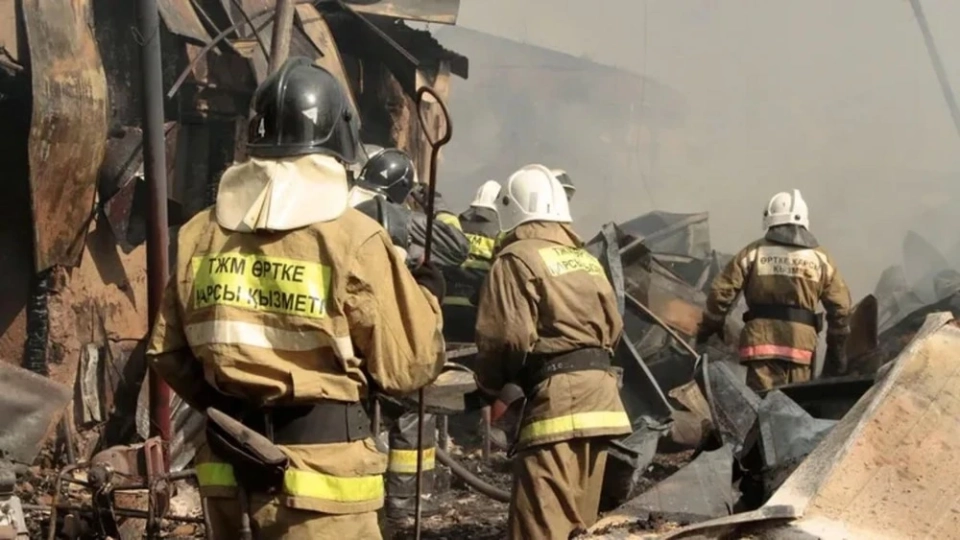
In Kazakhstan, 12 people died in a house fire, including nine children.
The firefighters arrived at the scene when the fire had already completely engulfed the building....
Nine children and three adults died in a fire in southern Kazakhstan
According to Tengrinews.kz, the fire engulfed the building before the firefighters arrived. In...
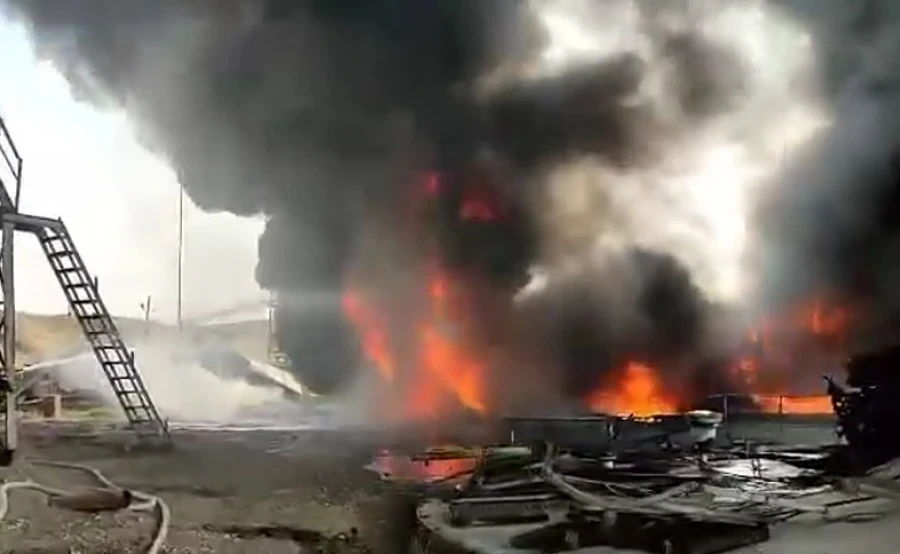
In Kadamdzhai, an oil production station is on fire
Four fire crews are working on site In the Batken region, in the village of Burgondu, a fire broke...
A fire broke out at an oil refinery in the Batken region
Today, October 28, a serious incident occurred in the Kadamjay district of the Batken region....
A terrible accident occurred in Kazakhstan. 12 people died.
On October 23, a tragic accident occurred in Kazakhstan, claiming the lives of 12 people. According...
A fire broke out at the "Kök-Sai" market in Bishkek. 5 fire crews are working at the scene.
The fire that broke out at the "Kök-Say" market on Orozbekova Street was caused by a pile...
A fire broke out in a residential house in the village of Dostuk, Karasuu District.
Today, November 10, a fire occurred in a residential house in the village of Dostuk in the Intymak...
In the village of Aral in the Tyup District, a utility building and a car burned down.
In the Issyk-Kul region, on S. Jumadylov Street in the village of Aral, a fire occurred, resulting...
A fire occurred at a café in the city of Cholpon-Ata
At 6:30 PM local time on November 17, a fire occurred at the "Sambusa" cafe in...
Fire in a Turkish hotel. The accused received life sentences.
On Friday, a court in Turkey sentenced 11 defendants to life imprisonment for a fire that claimed...
On the Osh-Gulcha Highway, 5 people died as a result of a collision between an Audi and a truck.
On the road from Osh to Gulcha, five people died as a result of a traffic accident, reports Turmush...
Fire in a high-rise building in Bishkek. Two residents jumped out of windows and sustained fractures.
This morning in Bishkek, a fire occurred in a multi-story residential building on Chingiz Aitmatov...
Fire engulfed the territory of the former oil refinery in Batken
In the Batken region, in the Kadamjay district, a serious fire occurred at the site of a closed oil...
A woman and her 5 children died in a fire. The Osh school, where four of the children studied, honored their memory.
In the city of Osh, at the school named after Gorky, a day of remembrance was held for the children...
In the village of Sary-Küngöy in the Kara-Kulja district, two tons of hay burned down.
In the village of Sary-Küngöy, located in the Kara-Kulzhinsky district, a fire occurred on...
In the USA, two Kyrgyz nationals died in a car accident, another is in serious condition.
In social media, the sister of one of the victims shared about the tragedy that occurred in...
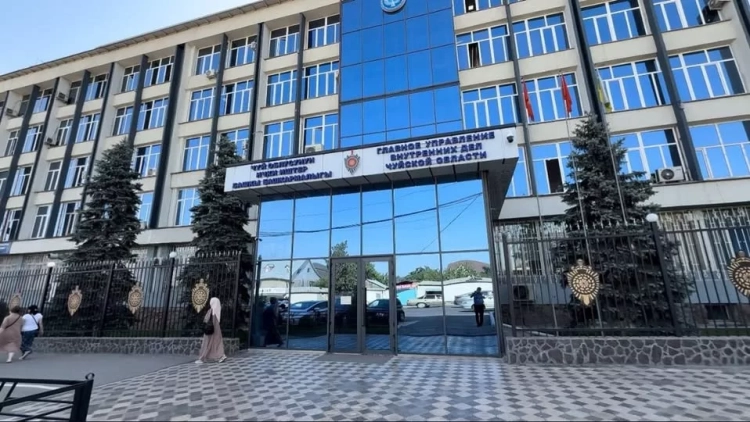
The Main Internal Affairs Directorate of Chui Region reported details of the cement tank explosion that resulted in fatalities.
As a result of the explosion that occurred at a gas block production facility, two people have...
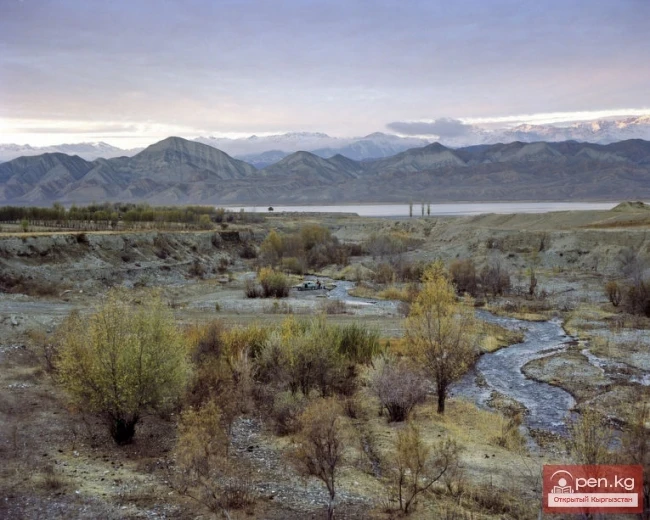
Meeting of the Interagency Commission on Water and Energy Issues.
Today, October 28, the first meeting of the Interdepartmental Commission on Water and Energy...
A fire broke out at a landfill in the village of Ösör, Osh region.
In the Osh region, in the village of Ösör, located in the Zulpuev rural district of the Nookat...
In the city of Manas, a car burned down — its owner is being sought
In Manas, a "Daewoo Lanos" car caught fire, reports Turmush correspondent. The...
Flames Destroy Cottages in "Raduga West" on Issyk-Kul – 5 Units Deployed to the Scene
In the village of Kosh-Köl, located in the Issyk-Kul region, a large fire occurred at the...
4 cottages burned down. Fire at the boarding house on Issyk-Kul has been localized.
A fire occurred at the "Rainbow West" boarding house in the Issyk-Kul region, which has...
In Bishkek, three people were injured after jumping out of windows during a fire in a building
A fire broke out in a multi-story building in Bishkek, resulting in three people getting injured...
A fire broke out in a high-rise building in the city of Kara-Kul: The fire damaged 2 apartments
In Kara-Kul, located in the Jalal-Abad region, a fire occurred today, November 6, on the fourth...

A fire broke out at a perfume factory in Turkey, killing 7 people
According to information published by Sabah, the fire broke out in the area where the facility is...
A car burned in the city of Manas
A fire incident involving a passenger car occurred in Manas. According to witness reports, the...
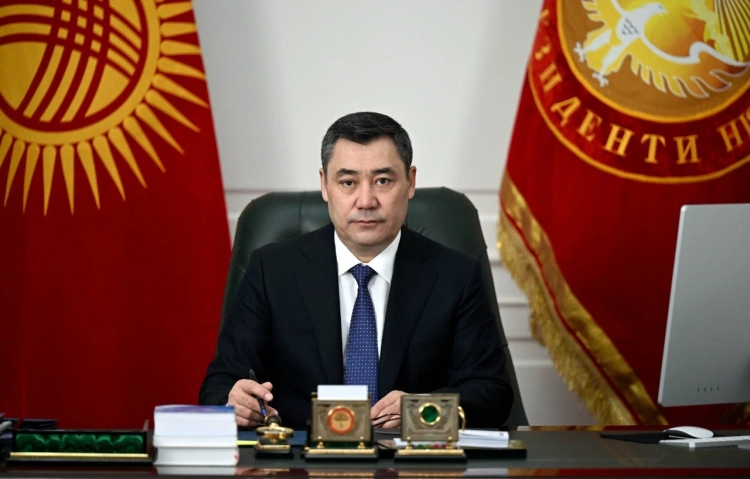
Sadyr Japarov expressed condolences to the relatives and friends of those who died as a result of the tragic incidents that occurred in Osh and in the village of Novopokrovka.
Sadyr Japarov, the President of Kyrgyzstan, expressed his condolences to the families affected by...
Tokaev proposed to create a unified tourist space in Central Asia
At the VII Consultative Meeting of the Heads of State of Central Asia, held in Tashkent, President...
In Kyrgyzstan, 12 fires registered in one day
In the last 24 hours, 12 cases of fires have been registered in Kyrgyzstan, for the elimination of...
In Kara-Suu, a fire at a construction site was quickly extinguished
In the Kara-Suu district of the Osh region, a fire broke out in a construction building in the...
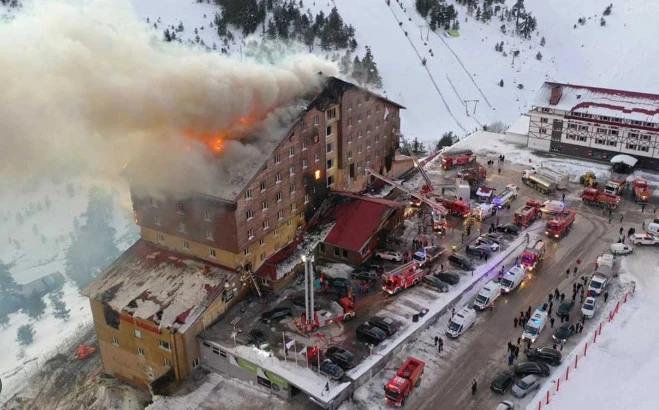
Fire at a ski resort in Turkey, where 78 people died: 11 defendants received life sentences
The court panel issued harsh sentences, assigning 34 life sentences for the deaths of children and...
Photo - In the city of Osh, the funerals of a woman and five children who died in a fire are taking place.
In the city of Osh, on October 23, the funeral of six family members took place, including a mother...
In the city of Kara-Kul, a kitchen in a residential building burned down
Today, November 17, a fire occurred in a residential house in the village of Jazy-Kechuu, located...
A fire broke out in a residential building in the city of Osh — 3 units were dispatched to the scene.
A fire broke out in one of the residential buildings on Kurmanjan-datka Street in the city of Osh....
Elections in the Housing Sector. Bishkek City Election Commission is replenishing its reserve
The Central Election Commission (CEC) has announced the start of document collection from citizens...
A fire broke out in a residential building in Razzakovo
In the Leilek district, on Ak-Tilek Street in the city of Razzakov, a fire has been reported in a...
A large fire in the north of Bishkek. A warehouse with construction materials is burning.
The fire report came in the evening. At 17:22, several fire crews were dispatched to the scene: two...
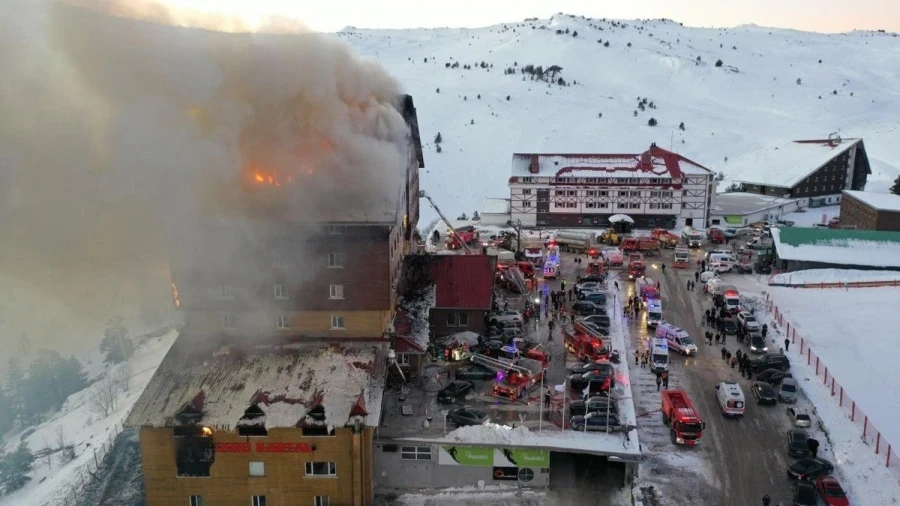
Fire that claimed 78 lives – 11 people sentenced to life imprisonment in Turkey
A tragedy occurred at a famous ski resort In Turkey, the trial regarding the fire at the Grand...
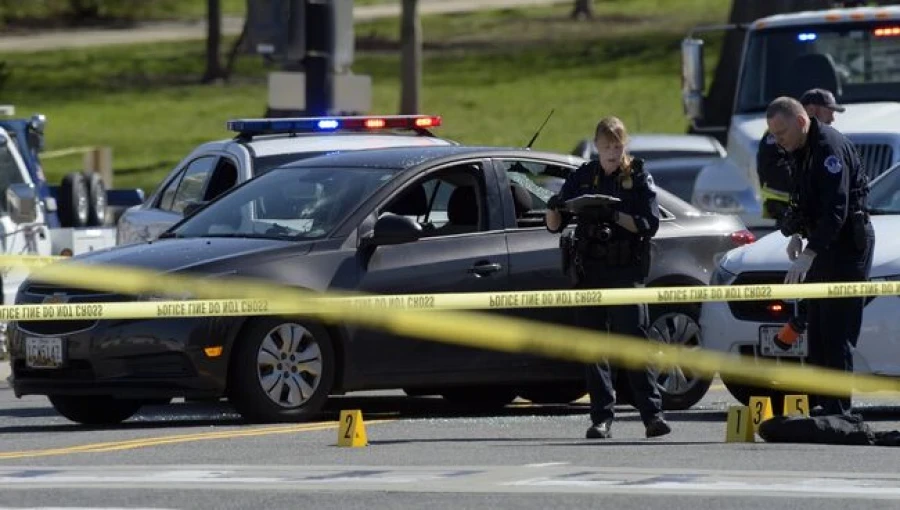
In a car accident in the USA, two young Kyrgyzstanis died, another is in serious condition.
The Kyrgyz diaspora in the USA has started a fundraising campaign As a result of a traffic...
Truck collided with a trailer in the Kara-Su district — a man and a woman died
As a result of a traffic accident in Kara-Suu, two people died. The fatal accident occurred on...
In Turkey, 11 people sentenced to life imprisonment for the fire at the Grand Kartal hotel
This tragedy occurred in January 2025 at Grand Kartal, located in the Bolu province. At the time of...

In October, four children were killed under the wheels: the UPSM appealed to drivers
Attention to motorists is urged to increase October has been tragic for Kyrgyzstan: as a result of...
